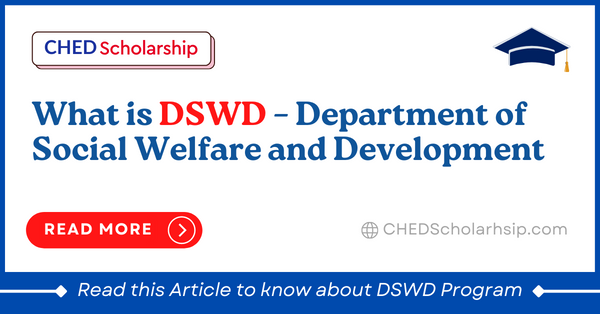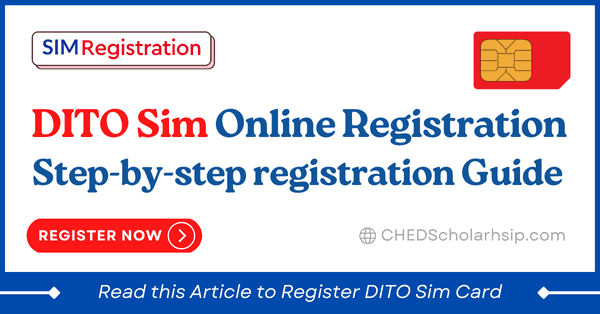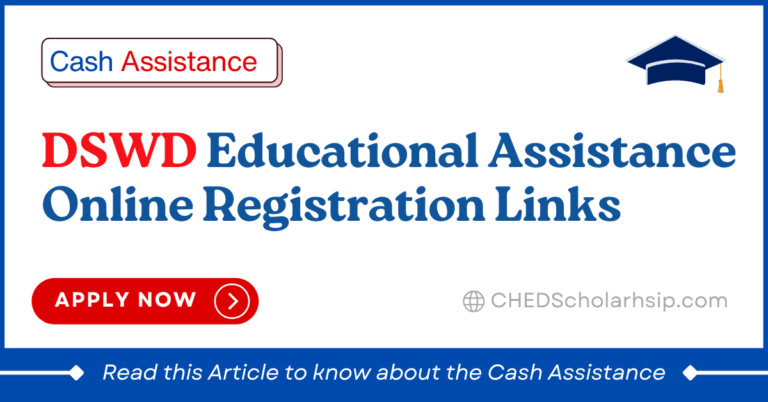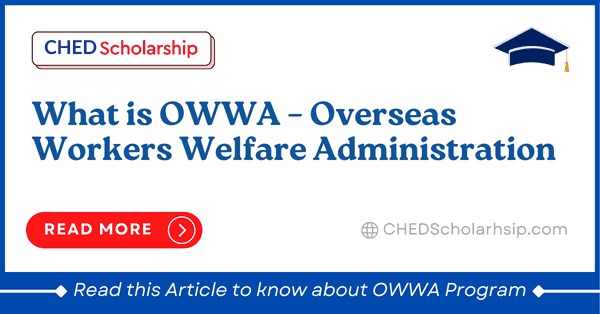DSWD means Department of Social Welfare and Development. The DSWD is a Philippine government agency responsible for the protection and promotion of Filipinos’ social welfare and development. In this article, you will know about the Goals, Programs and services of DSWD.

The DSWD protects vulnerable groups such as orphans, abandoned children, street children, individuals with disabilities, the elderly, women, and indigenous peoples. During times of crisis and disaster, the department also provides relief assistance.
Through its initiatives on livelihood, social housing, educational assistance, and financial transfers, the DSWD also seeks to prevent and alleviate poverty. The department offers a diverse range of programs and services that have an impact on the lives of Filipinos from all walks of life.
Table of Contents
- Department of Social Welfare and Development
- Vision and Mission
- Goals of DSWD
- Core Values
- Popularly Known as
- Primary Objectives
- DSWD Programs and Services
- 1. Foster Care and Adoption
- 2. BUB stands for Bottom-Up Budgeting
- 3. Residential Care Facilities and Centers
- 4. Disaster Relief Operations
- 5. Gender and Development
- 6. International Social Welfare Services for Filipino (ISWSFN)
- 7. Kalahi CIDSS – NCDDP
- 8. Listahanan
- 9. PAMANA
- 10. Protective Services Program
- 11. Recovery and Reintegration for Trafficked Persons Program (RRPTP)
- 12. Supplemental Feeding Program
- 13. Sustainable Livelihoods Program(SLP)
- 14. The Pantawid Pamilyang Pilipino Program (4ps)
- Related:
- FAQ
Department of Social Welfare and Development
President Corazon C. Aquino’s Executive Order 123, issued in 1987, restructured the MSSD and renamed it the Department of Social Welfare and Development (DSWD).
Executive Order No. 292, also known as the Revised Administration Code of 1987, created the Department of Social Welfare and Development’s (DSWD) name, organizational structure, and functional areas of responsibility, as well as further clarified its statutory jurisdiction.
The Department of Social Welfare and Development (DSWD) is the government agency in the Philippines in charge of developing and implementing social welfare and development initiatives.
Vision and Mission
The Department of Social Welfare and Development envisions all Filipinos free from hunger and poverty, have equal access to opportunities, enabled by a fair, just, and peaceful society.
The mission of DSWD is “To lead in the formulation, implementation, and coordination of social welfare and development policies and programs for and with the poor, vulnerable and disadvantaged”.
Goals of DSWD
The Department of Social Welfare and Development (DSWD) is assigned by law with
- developing,
- administering, and
- implementing
comprehensive social welfare programs aimed at improving living conditions and empowering disadvantaged children, youth, women, seniors, people with disabilities, crisis or at-risk families, and communities in need.
Core Values
The Department of Social Welfare and Development (DSWD) stands on these 3 core values:
Maagap at Mapagkalingang Serbisyo;
Serbisyong Walang Puwang sa Katiwalian;
Patas na Pagtrato sa Komunidad
Popularly Known as
DSWD is popularly known as “DSWD Cares” or “DSWD May Malasakit”.
Primary Objectives
The primary objectives of DSWD are as follows:
- To assist service providers in improving their ability to manage individual, family, group, or community cases.
- Establish performance measures to track and evaluate the effectiveness of social welfare and development programs, as well as their influence on cases under supervision.
- To facilitate on-site and interactive case management problem-solving with service providers (LGU, NGO and DSWD).
- Improve worker/agency performance by giving or facilitating access to technical assistance for supervisory recipient.
DSWD Programs and Services
Following is a comprehensive list of programs and services carried out by the DSWD – Department of Social Welfare and Development:
1. Foster Care and Adoption
It is the permanent placement of a minor with a parent or parents other than the birth parents.
2. BUB stands for Bottom-Up Budgeting
Bottom-Up Budgeting (BUB) is a process that was piloted in 2013 and is now in its third cycle to ensure the implementation of key poverty reduction initiatives.
3. Residential Care Facilities and Centers
These are 24-hour services that suggest an alternative family care arrangement to poor, vulnerable, and disadvantaged individuals or families in crisis.
4. Disaster Relief Operations
It is both a life-saving emergency response and a long-term strategy.
5. Gender and Development
Gender is concerned with relationships, such as those between men and women, women and men, men and men, and boys and girls. The GAD recognizes that gender concerns affect all elements of development and that gender must be considered when the government creates, funds, implements, monitors, and evaluates development policies, programs, and projects.
6. International Social Welfare Services for Filipino (ISWSFN)
The International Social Welfare Services for Filipino (ISWSFN) Citizens is a program that encourages migrant Filipinos and other foreign Filipino nationals who require particular protection to seek assistance from Philippine embassies in their destinations.
7. Kalahi CIDSS – NCDDP
The Kapit-Bisig Laban sa Kahirapan – Comprehensive Integrated Delivery of Social Services: Kapangyarihan at Kaunlaran sa Barangay (KALAHI-CIDSS: KKB) is a community-driven flagship development project of the government of the Philippines that aims to empower communities through direct participation in community projects aimed at reducing poverty. Its mission is to bring asset reforms, human development services, capacity building, and engagement in governance.
8. Listahanan
Listahanan is a data management system that determines who the poor are and where they are located throughout the country. It is managed by the National Household Targeting System for Poverty Reduction (NHTS-PR).
9. PAMANA
PAMANA means Payapa at Masaganang Pamayanan Program aims to improve access to basic social services for underprivileged communities while also promoting responsive governance.
10. Protective Services Program
The Assistance to Individuals in Crisis Situations (AICS) and Assistance to Communities in Needs (ACN) programs provide a variety of interventions to individuals, families, and communities in crisis or challenging situations, as well as vulnerable or disaster-affected communities.
11. Recovery and Reintegration for Trafficked Persons Program (RRPTP)
The Recovery and Reintegration Program for Trafficked Persons (RRTP) is a comprehensive set of activities and services designed to meet the psychosocial and economic needs of the beneficiaries.
12. Supplemental Feeding Program
The Supplemental Feeding Program is a government-sponsored initiative that provides food to children in addition to their regular meals as part of the DSWD’s ECCD program.
13. Sustainable Livelihoods Program(SLP)
SLP means Sustainable Livelihood Program. This is a community-based capacity-building program aimed at improving program participants’ socioeconomic situation. SLP is implemented using a two-track program. The first track is the Microenterprise Development Track, which assists microenterprises in becoming more organizationally and economically viable. Meanwhile, the second track, Employment Facilitation, assists participants in finding suitable employment opportunities.
14. The Pantawid Pamilyang Pilipino Program (4ps)
The Pantawid Pamilyang Pilipino Program, also known as the “4Ps,” is a human development program that invests in the health and education of low-income families, primarily those with children aged 0 to 18.
Related:
FAQ
The DSWD is a Philippine government agency responsible for the protection and promotion of Filipinos social welfare and development.
The DSWD, a government agency in the Philippines, dedicated for providing social protection services to poor and disadvantaged individuals and families.
The mission of DSWD is “To lead in the formulation, implementation, and coordination of social welfare and development policies and programs for and with the poor, vulnerable and disadvantaged”.
Furthermore, under Executive Order 123 signed by President Corazon C. Aquino, the MSSD underwent a comprehensive reorganization, leading to its subsequent renaming as the Department of Social Welfare and Development (DSWD).
The DSWD email address is [email protected].
Those whose monthly family income does not exceed P14,000.00 in Metro Manila, and not exceed P13,000.00 in other regions.



